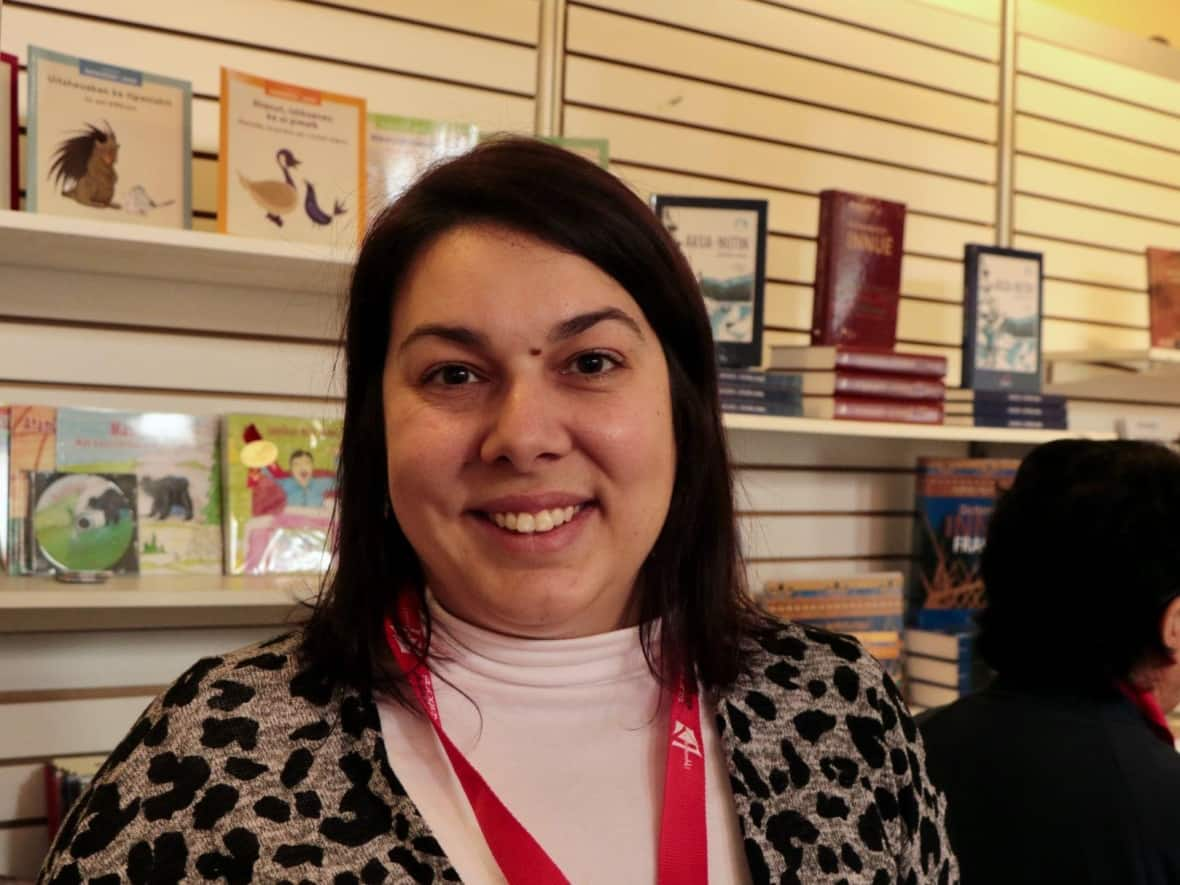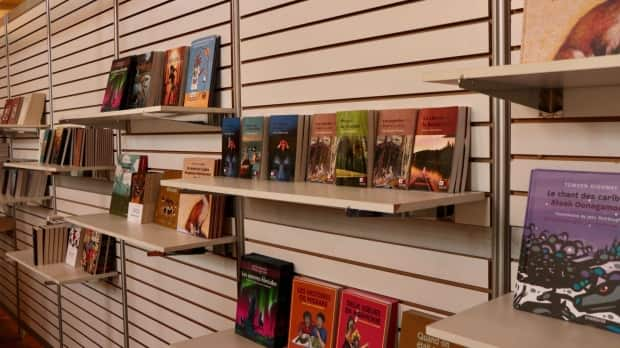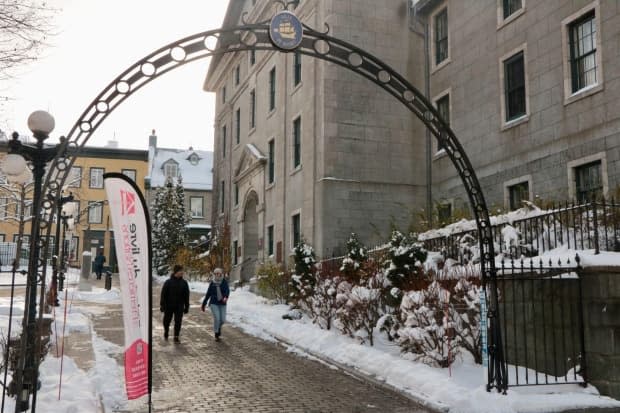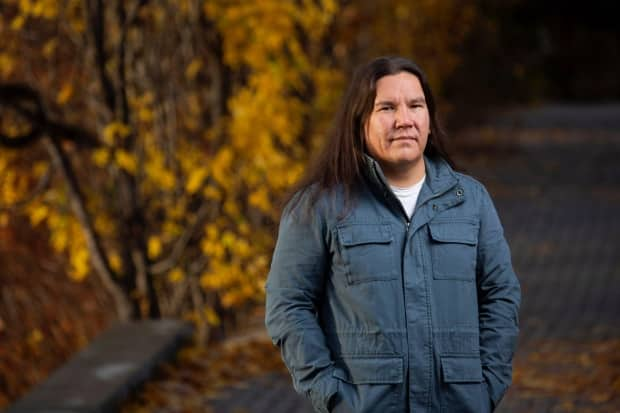Annual book festival kicks off in Quebec City, showcasing Indigenous authors and storytelling

As the popularity of works by Indigenous authors in Quebec and Canada grows in prominence and acclaim, a book festival in Quebec City is hoping to draw fans this weekend to meet well-known writers and discover new talent.
Authors and community organizations from across the country are participating in the 11th edition of the Salon du Livre des Premières Nations, produced by Kwahiatonhk!, an organization that promotes Indigenous writing.
Marie-Pier Carré was at the Morrin Centre on Friday, representing the Tshakapesh Institute, an organization based in Uashat, near Sept-Îles, Que. that promotes Innu culture, language and cultural heritage. This is the third year they are participating.
Festivals like these help with their mission of "keeping language alive," said Carré.
"The number of speakers decreased year after year in the community. So on our level … it's about keeping the language alive and proposing resources to the population, whether it be older people or young people," said Carré who lives in Uashat and is from the Uashat Mak Mani-Utenam Nation, near Sept-Îles.
"I invite people to come down and visit us and let their curiosity guide them and bring them here. There are many beautiful events organized here. We are waiting for you."
First Nations in Canada have a long history of oral story-telling but, increasingly, literature produced by Indigenous writers is gaining renown. Promoting those written works is something Louis-Karl Picard-Sioui is passionate about as an author and co-founder of Kwahiatonhk!, the non-profit that organizes the festival.
"More and more, I think that people in Quebec and everywhere in Canada just realized that we have a lot of great Indigenous authors in this country," said Picard-Sioui, adding that the first few editions of this event, which began in 2011, had their challenges.
"We realized that, at the time, it was really difficult to get people in our respective regions interested in Indigenous literature and particularly Indigenous literature written in French. So we had to work hard," said Picard-Sioui, who is Huron-Wendat from Wendake.

'Greater abundance' of Indigenous authors
This year events are taking place at three locations around Quebec City: the Morrin Centre, the Maison de la littérature and the Salle Multi.
Upon reservation, the free event will include performances, book signings and interviews with the authors, which will also be broadcasted live on the web. On Saturday at 10 a.m. and 1 p.m. CBC's Julia Caron, the host of Quebec AM, will interview Waubgeshig Rice and Karen McBride at the Maison de la littérature.
The theme of this year's edition is "transformation," said Picard-Sioui, representing the diverse literature, Indigenous mythologies and the development and growth of the festival over the years.
"Back in the day, it was really in the community. It was a small-scale event. It was really for a niche [audience]," said Picard, who first started co-ordinating the festival on its third edition.

It has grown in scale and now welcomes authors from across Canada, including Waubgeshig Rice, from Sudbury, Ont.
Rice is Anishinaabe and originally from Wasauksing First Nation. He says he has noticed the growth of Indigenous authors across the country in recent years, after participating in numerous book fairs.
"I've been a part of English-language festivals for the past 10 years or so, since my first book came out," said Rice.
"What I've seen just in that short amount of time is that there would be a very small handful of Indigenous authors at events, one to three [authors] and they'd be sort of siphoned into an Indigenous specific panel," he recalled.
"But now there is a greater abundance of these authors and festival programmers and event organizers are weaving them more … It's really encouraging."

'Changing perspectives around what literature can be'
Rice says these festivals offer moments to share "revolutionary" storytelling, considering Indigenous authors often document their experiences.
"I think they're changing perspectives around what literature can be and how it works," Rice said.
"I think if it forces people to think outside the normal lines of like traditional literature," he said. "In that sense, it kind of disrupts and transforms the classical forms that many of us were raised [and] learning about in mainstream English class."
"What it does is showcase some really provocative ways of approaching literature but adapting traditional Indigenous stories into it, which is an art form in and of itself in my opinion … In the end, it's just really interesting to see how we can learn from each other."


